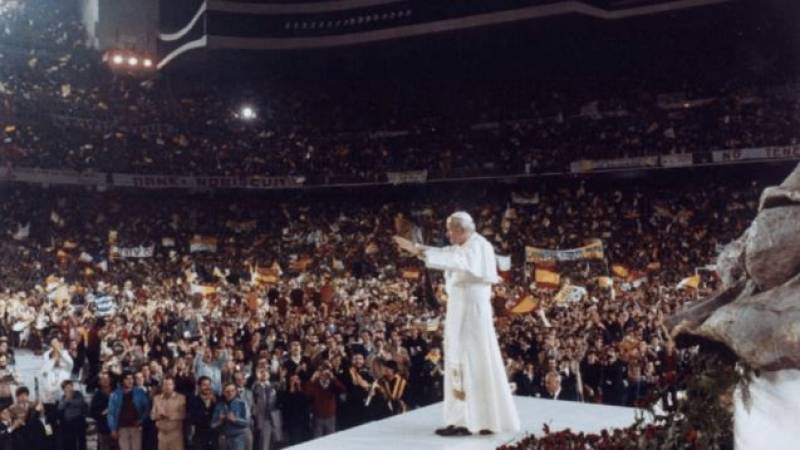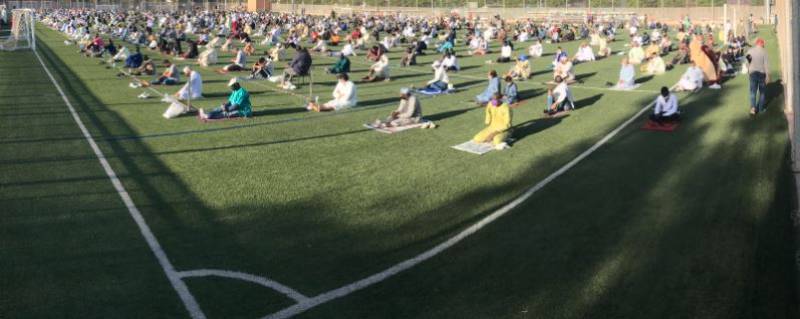Date Published: 08/08/2025
Jumilla clarifies religious restrictions on public sports venues amid community concerns
Jumilla insists peaceful coexistence remains intact as debate continues over religious celebrations in public spaces
Jumilla, a wine-growing town in the northwest of Murcia near the borders with Alicante and Albacete, is home to nearly 28,000 people representing 72 nationalities. The most numerous foreign communities, according to the local government, come from South America, followed by Moroccans, who make up around 10% of the population and have lived in the town for decades.
At the centre of the issue is a July plenary session decision, in which the local Partido Popular (PP) group approved an amendment to a Vox motion. The amendment resulted in
restrictions on using the municipal sports centre for non-sporting purposes, a move that has effectively prevented the town’s Islamic communities from continuing to hold their religious celebrations there.
Jumilla has three Islamic communities, whose leaders have declined to comment publicly. However, Walid Habbal, regional coordinator, said that the decision has left people in “shock”.
The local PP group has strongly rejected the idea that the change amounts to a targeted ban on the Muslim community.
“The news is manipulated, malicious, biased and false,” said the PP in Jumilla, insisting that “neither the Jumilla Town Council nor any other council in Spain could prohibit, for example, the holding of any type of event, whatever it may be, on public roads or in places and spaces adapted for that purpose.”
The party also stressed that peaceful coexistence in Jumilla continues, despite recent headlines.
“When a sports venue is requested to organise a car exhibition, a gastronomic event, a book fair or a Catholic mass, it cannot be approved, regardless of who requests it and whoever prays to whom,” the group stated.
They added that “if the Arab community requests a sports venue to host a basketball, soccer or any other sporting event to promote sports among the Arab community, the transfer will be approved if it meets the technical criteria.”
While this justification makes sense on the surface level, the unavoidable fact is that large public venues across the globe are used for different purposes every day of the week. Football stadiums are used for concerts, school halls are transformed into exhibition spaces. The list goes on.

When the news of the ban broke, a Vox spokesperson pointed out that "you don't see a mass on a football field.” However, he may have forgotten that in 1982, Pope John Paul II gave a public address in Madrid’s Bernabeu, the most famous football stadium in the country.
In fact, right in the heart of Jumilla, the grounds of the Arzobispo Lozano secondary school will be used to host several rock concerts during the upcoming fiestas.
Vox’s spokesperson was a bit more inflammatory with his party’s rationale behind the ban: "Just as Holy Week is not celebrated in Morocco," he said, "religious events will not be held in public spaces," which does not prevent the Muslim community from holding their celebrations since "they have a mosque in Jumilla."
"This is not an issue against Islam or religion. It's about defending our traditions against a foreign culture."
While Jumilla's situation differs significantly, the timing and framing of the decision have caused confusion and concern among some residents.
Municipal leaders continue to defend the move as a matter of proper facility use rather than an attack on religious freedoms.
Images: Islam Murcia/infovaticano
article_detail

|




 When the news of the ban broke, a Vox spokesperson pointed out that "you don't see a mass on a football field.” However, he may have forgotten that in 1982, Pope John Paul II gave a public address in Madrid’s Bernabeu, the most famous football stadium in the country.
When the news of the ban broke, a Vox spokesperson pointed out that "you don't see a mass on a football field.” However, he may have forgotten that in 1982, Pope John Paul II gave a public address in Madrid’s Bernabeu, the most famous football stadium in the country.







